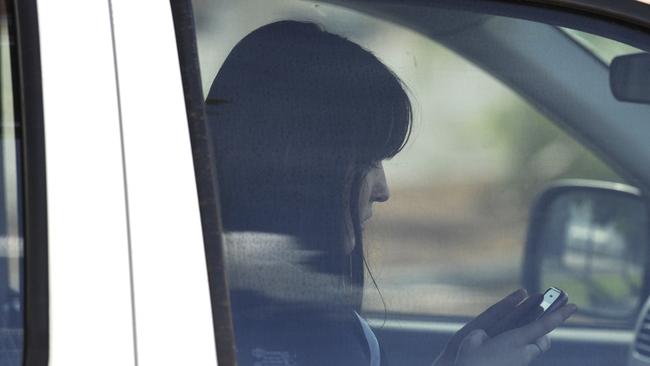Young drivers mimic risky parent phone use behind the wheel
More of our kids are dying from this simple act every year and Aussie parents are to blame.
It’s no secret children copy their parents. They watch, they learn and they do.
But what happens when what they’re learning is a dangerous driving habit?
A new road safety study has revealed teens are far more likely to use mobile phones behind the wheel if they’ve seen mum or dad do the same.
Children who observe their parents taking photos or videos while driving are nearly five times more likely follow suit.
Even hands-free usage is having an impact, with young drivers 140 per cent more likely to adopt the behaviour.
If parents are seen to be texting while driving….well, their children are 187 per cent more likely to do the exact same thing.
Road Safety Education Australia general manager Maria Lovelock explained the numbers were “not entirely unexpected”.
“Through our Ryda program, we’ve been tracking concerning patterns in road safety attitudes across generations,” she said.
MORE:Shock group of Aussie drivers a new death risk

MORE:How modern car tech is dangerous
“What’s particularly striking is how the data reinforces what we’ve observed in our workshops – that safety behaviours are heavily influenced by what young people witness during their formative years”
The findings come amid a growing concern over mobile phone usage behind the wheel.
In Victoria, the Transport Accident Commission revealed that 52 per cent of drivers use their mobile phone while driving.
Surprisingly, Lovelock said the most dangerous habit wasn’t texting but the “quick check” of notifications while driving.
“Parents often justify these moments as necessary or harmless, but they establish a pattern that young drivers then replicate, often with more severe consequences due to their inexperience behind the wheel,” she said.
Despite hands-free use being legal, Lovelock said it does deserve more scrutiny.
“I believe we need to follow the evidence. Current research strongly indicates that the cognitive distraction of phone conversations, even hands-free, significantly impairs reaction time and hazard perception,” she said.

MORE:Is new car tech making roads more dangerous?
“At RSE, we’re advocating for a comprehensive approach that recognises all forms of distraction – physical, visual and cognitive – as significant road safety issues requiring attention in both policy and education.”
Road Safety Education (RSE) head of program delivery John Elliott said while the research revealed an “uncomfortable truth”, there is hope.
“The data clearly shows that when young people observe their parents using phones while driving, they’re dramatically more likely to normalise and ultimately replicate these behaviours,” he said.
“Encouragingly, over 95 per cent of Ryda students indicated they were likely to use, or have already started using, Ryda strategies for managing phones while driving, including switching on do-not-disturb mode or switching the phone off completely, and keeping it out of sight in the glove box.”
Elliott warned that parents need to be aware of their actions.
“Parents need to understand that every time they reach for their phone, they’re not just putting lives at immediate risk - they’re programming future driving behaviours that could have consequences for decades,” he said.



To join the conversation, please log in. Don't have an account? Register
Join the conversation, you are commenting as Logout